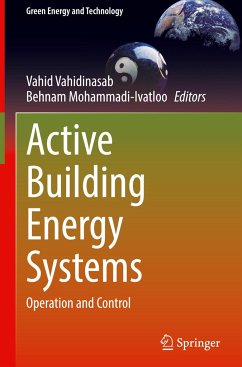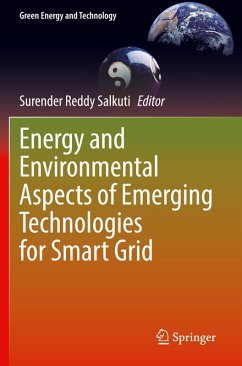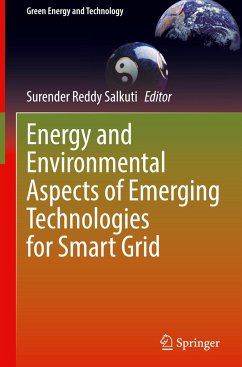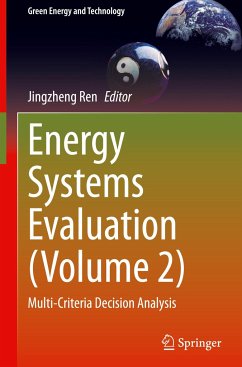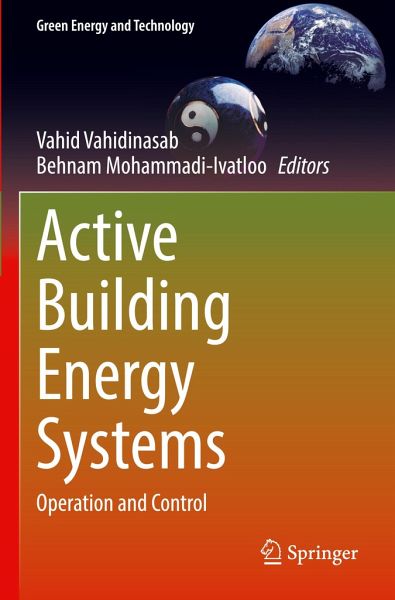
Active Building Energy Systems
Operation and Control
Herausgegeben: Vahidinasab, Vahid; Mohammadi-ivatloo, Behnam
Versandkostenfrei!
Versandfertig in 6-10 Tagen
129,99 €
inkl. MwSt.

PAYBACK Punkte
65 °P sammeln!
This book provides a comprehensive study on state-of-the-art developments in the control, operation, and market participation of active buildings (ABs). Active buildings can support the broader energy system by intelligent integration of renewable-based energy technologies for heating, cooling, electricity, and transport. This important reference analyzes the key features of modern control and operation techniques applied to these systems. Contributions from an international team of experts present practical methods with evidence and case studies from applications to real-world or simulated ac...
This book provides a comprehensive study on state-of-the-art developments in the control, operation, and market participation of active buildings (ABs). Active buildings can support the broader energy system by intelligent integration of renewable-based energy technologies for heating, cooling, electricity, and transport. This important reference analyzes the key features of modern control and operation techniques applied to these systems. Contributions from an international team of experts present practical methods with evidence and case studies from applications to real-world or simulated active buildings. Sample computer codes and analytical examples aid in the understanding of the presented methods. The book will support researchers working on the control and operation of buildings as an energy system, smart cities and smart grids, and microgrids, as well as researchers and developers from the building and energy engineering, economic, and operation research fields.
- Provides an in-depth review of building-level energy systems technologies;
- Covers codes, standards, and requirements for active building control systems;
- Includes sample computer code and analytical examples.





